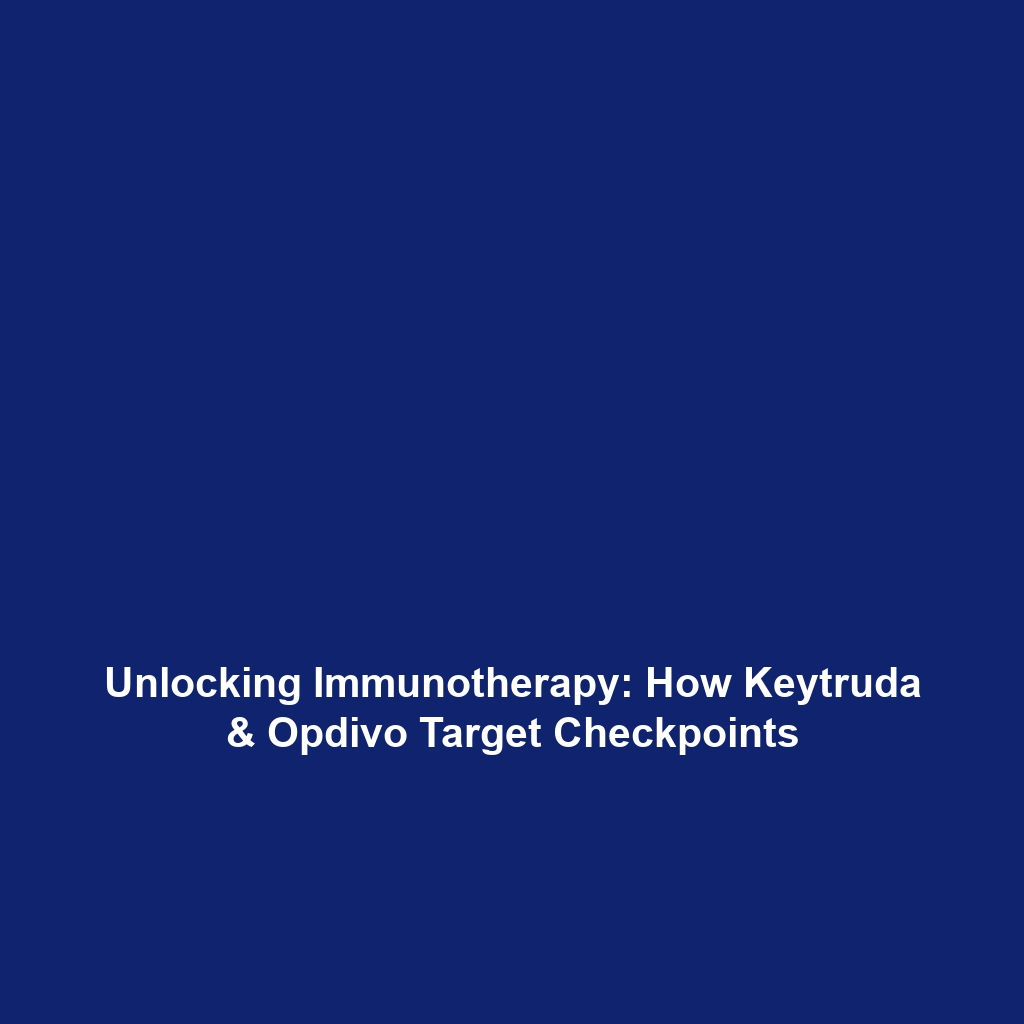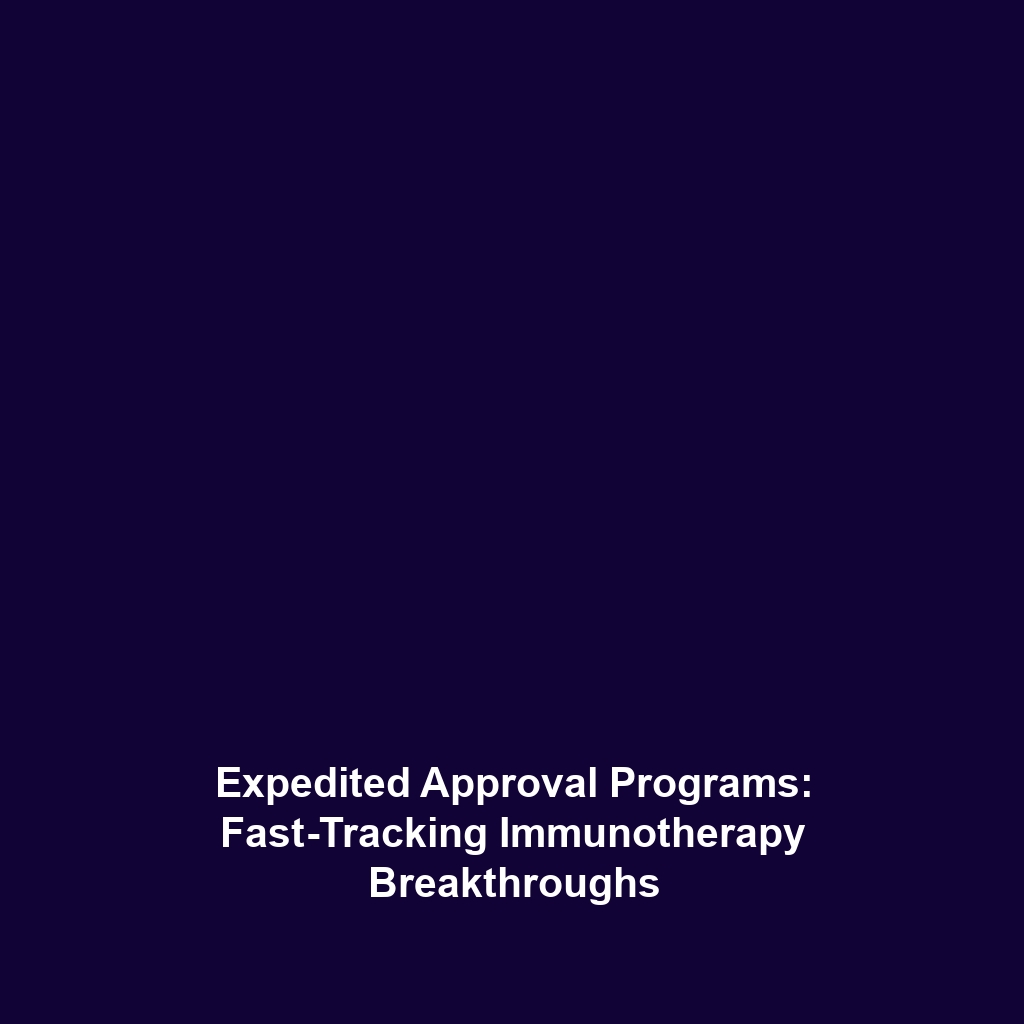Understanding How Pembrolizumab (Keytruda) and Nivolumab (Opdivo) Work by Targeting Immune Checkpoints
The advent of immunotherapy has revolutionized cancer treatment, making significant strides in targeting disease mechanisms. Key players in this field, pembrolizumab (Keytruda) and nivolumab (Opdivo), are monoclonal antibodies that specifically target immune checkpoints. These drugs play a critical role in reactivating the body’s immune response against cancer cells, thus standing as a cornerstone in the realm of Immunotherapy & Cancer. This article explores how these drugs function, their applications, challenges, and future directions.
Key Concepts of Immune Checkpoint Inhibition
Immune checkpoints are molecules in the immune system that help maintain self-tolerance and modulate the duration and amplitude of physiological immune responses. When cancer cells exploit these checkpoints, they can evade immune detection and destruction. Pembrolizumab and nivolumab function by inhibiting proteins such as PD-1 (Programmed Cell Death Protein 1) and CTLA-4 (Cytotoxic T-Lymphocyte Antigen 4). This inhibition results in an enhanced cytotoxic T cell response against tumors, making these treatments vital in Immunotherapy & Cancer.
The Mechanism of Action
– Pembrolizumab (Keytruda): Binds to PD-1 on T cells, blocking its interaction with PD-L1 and PD-L2, thus removing the brakes on the immune system.
– Nivolumab (Opdivo): Also targets PD-1 but has distinct properties that may yield different clinical outcomes compared to pembrolizumab.
Applications and Real-World Uses
The clinical applications of pembrolizumab and nivolumab are vast and continually expanding. Here are some significant uses:
- Used in the treatment of various cancers, including melanoma, lung cancer, and head and neck cancers.
- Combined with other therapies such as chemotherapy and radiation, enhancing overall effectiveness.
- Approved for use in early-stage cancers, increasing survival rates significantly.
Understanding how pembrolizumab and nivolumab are used in Immunotherapy & Cancer has implications for treatment strategies and patient outcomes.
Current Challenges in Immunotherapy
Despite their success, several challenges persist in the application of pembrolizumab and nivolumab:
- Resistance Mechanisms: Some tumors develop resistance to checkpoint inhibitors.
- Adverse Effects: Immune-related adverse events can lead to severe complications.
- Patient Selection: Identifying individuals who will benefit from these therapies remains a challenge.
These challenges in targeting immune checkpoints underscore the need for ongoing research and development.
Future Research and Innovations
Future research is focused on enhancing the effectiveness of pembrolizumab and nivolumab through various innovative approaches:
- Combination Therapies: Exploring multi-drug regimens that include immunotherapy with targeted therapies.
- Biomarker Development: Identifying predictive biomarkers to tailor treatments to individual patients.
- Novel Checkpoint Inhibitors: Investigating new targets beyond PD-1 and CTLA-4 to further stimulate anti-tumor immunity.
Innovations in how pembrolizumab and nivolumab work in Immunotherapy & Cancer are likely to enhance patient outcomes in the future.
Conclusion
Pembrolizumab (Keytruda) and nivolumab (Opdivo) represent groundbreaking advancements in the treatment of cancer through the mechanism of immune checkpoint inhibition. Their application in clinical settings highlights their significance in Immunotherapy & Cancer. Continued research is crucial for overcoming current challenges and integrating these therapies into broader treatment paradigms. For further insights, explore our other articles on emerging cancer therapies and latest breakthroughs in immunotherapy.


